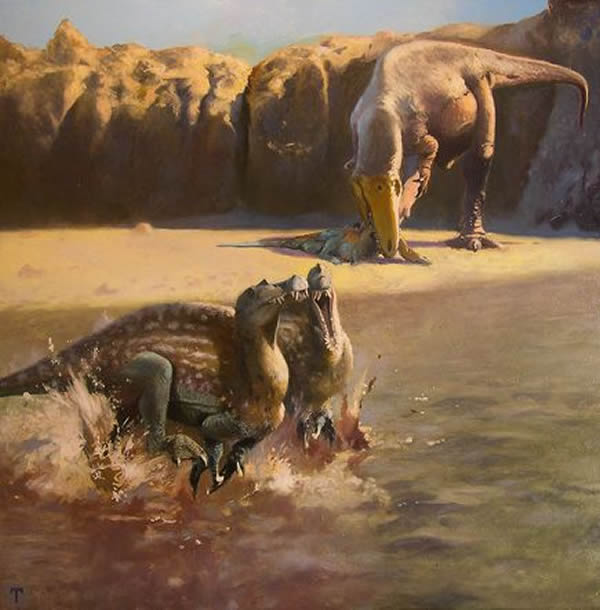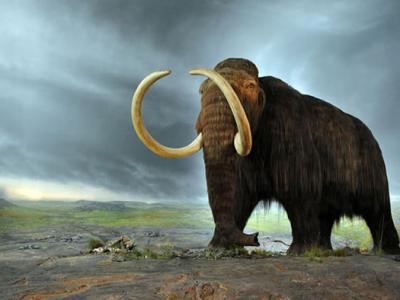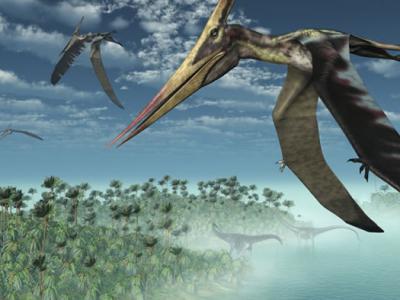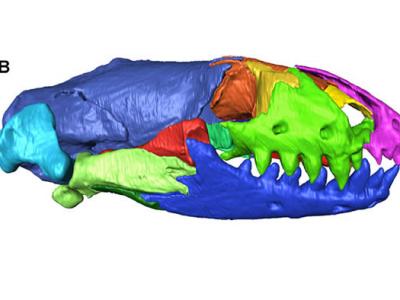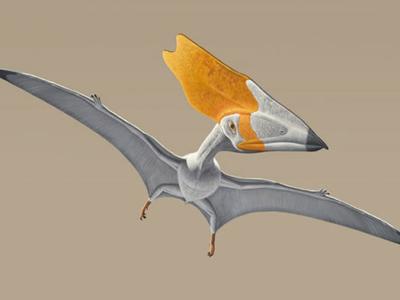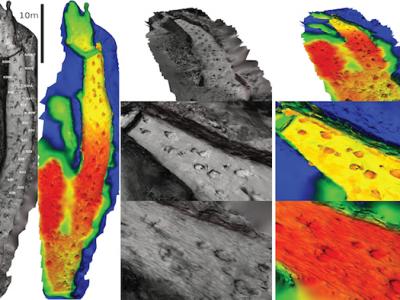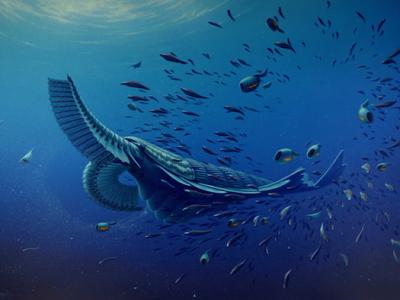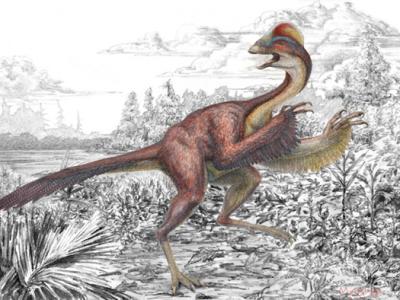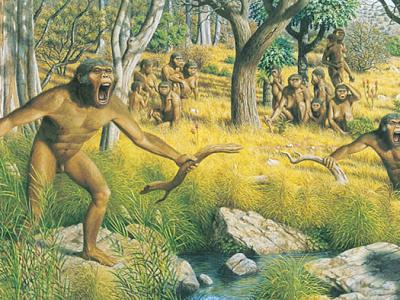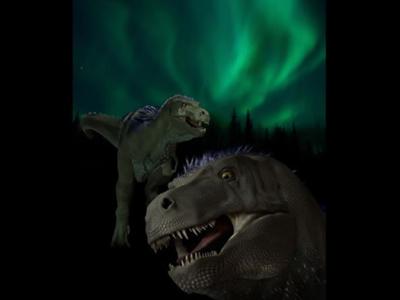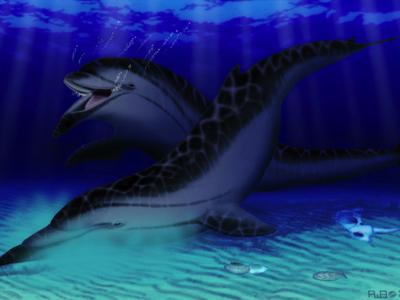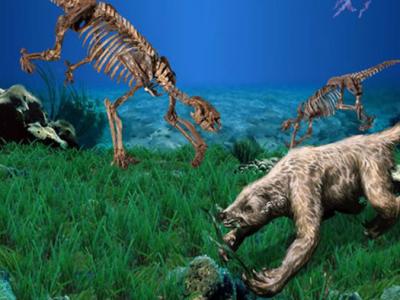New "Sauron" Dinosaur Found, Big as T. Rex
In an artist's rendering, Sauroniops feeds on a young Spinosaurus while other Spinosaurus run nearby.
Named after the demonic Eye of Sauron from the Lord of the Rings films, a new species of flesh-ripping dinosaur terrorized North Africa some 95 million years ago, a new study says.
The species—Sauroniops pachytholus, or "eye of Sauron" in Greek—was identified from a single fossil unearthed in southeastern Morocco in 2007.
That fossil included only part the upper skull—including the eye socket, study leader Andrea Cau, of the Museo Geologico Giovanni Capellini in Bologna, Italy, said by email.
"The idea of a predator that is physically known only as its fierce eye reminded me of Sauron, in particular as depicted in Peter Jackson's movies," Cau explained.
A Match for T. Rex
As a carcharodontosaur—a type of huge theropod, or two-legged meat-eater—Sauroniops likely had "a long and deep skull bearing dozens of bladelike teeth," he said.
Comparisons of the skull fossil with those of related species suggest the creature measured up to 40 feet (12 meters) in length.
"The skull bone of Sauroniops is very broad and particularly thick: This suggests an animal as big as Tyrannosaurus [rex]," Cau said. But without more fossils, "a more precise estimation of its size is currently impossible," the paleontologist added.
The fossil also revealed that the dinosaur had a distinctive bump on its forehead, which sets Sauroniops apart from other carcharodontosaurs, according to the study, published recently in the journal Acta Palaeontologica Polonica.
This lumpy growth may have been used for head-butting clashes during male mating displays, the team speculates.
Sauron Dinosaur Was a Giant Among Giants
As the fourth carcharodontosaur known from Africa, Sauroniops shared its Moroccan stomping ground with the equally ferocious Carcharodontosaurus saharicus.
Though these top predators may have given each other the evil eye, it's quite possible they targeted different prey and weren't direct competitors, Cau said.
"Sauroniops lived along the banks of a large delta, under a hot and warm climate, very rich of fishes and crocodiles," he added. "The abundance of food may explain the abundance of predatory dinosaurs."
James Owen
for National Geographic News
Published November 6, 2012
